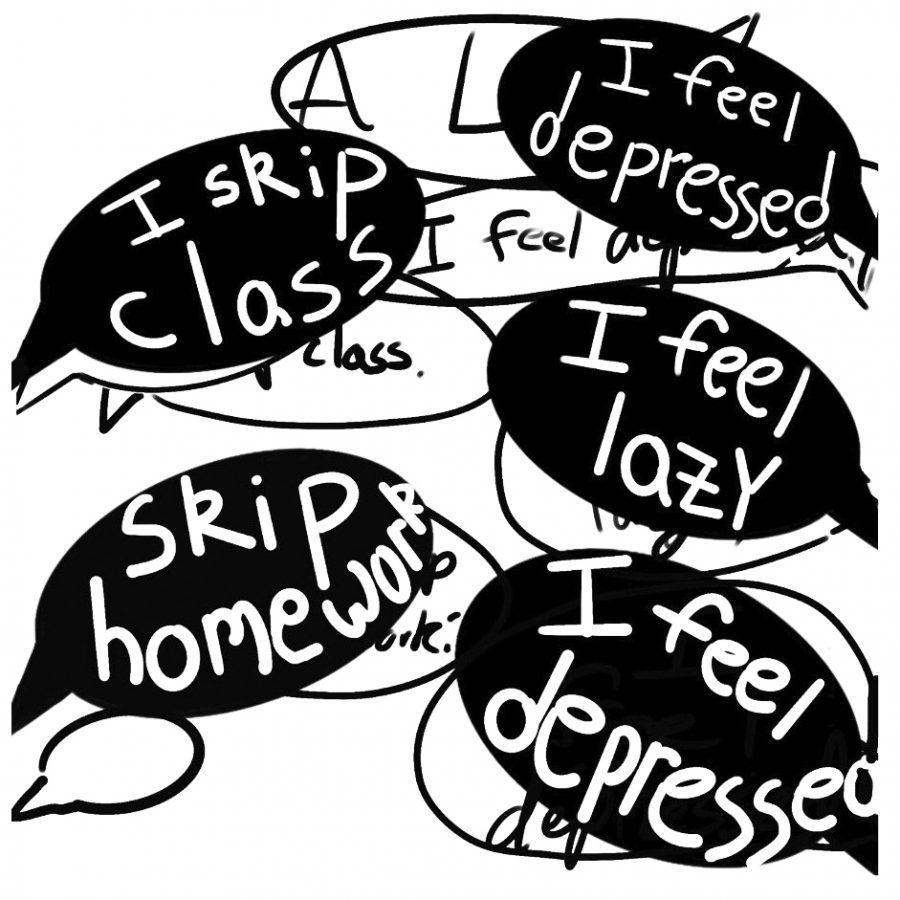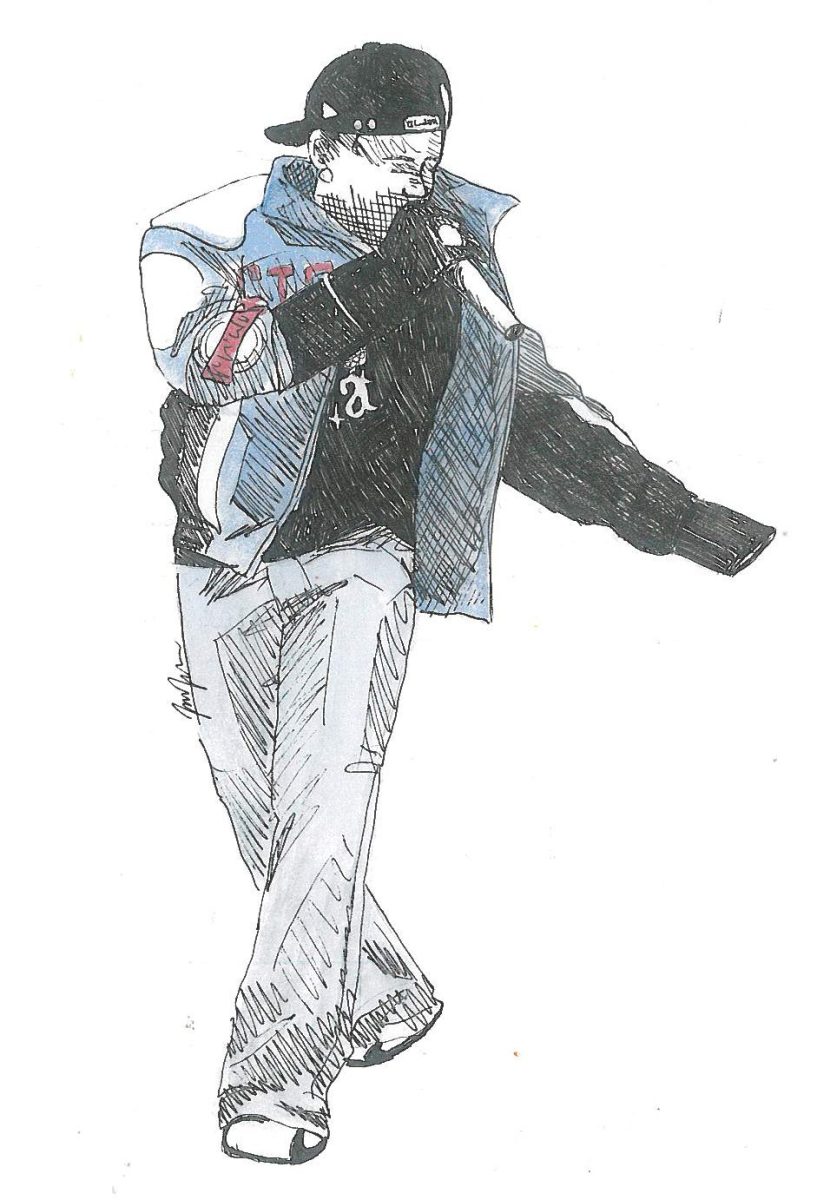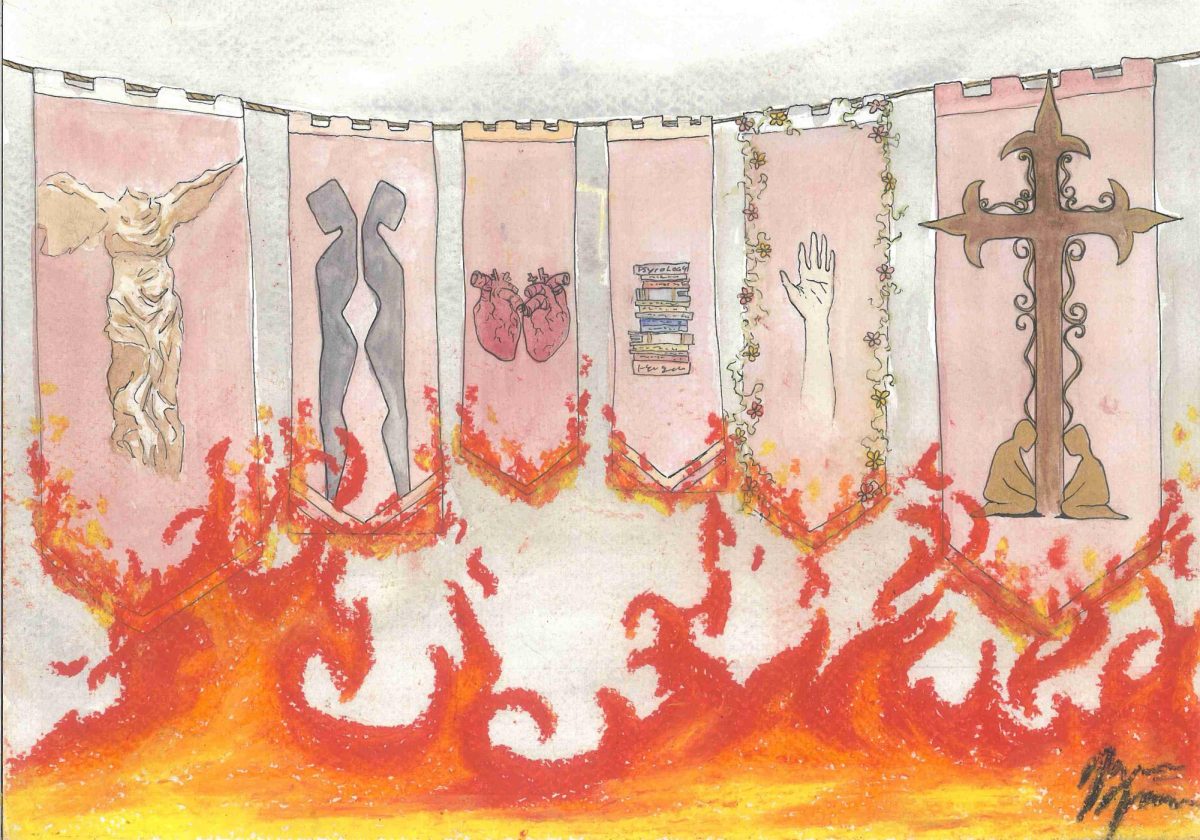From watching antidepressant commercials on TV, I previously believed that depression was a mental illness that only affected white women.
I read about Virginia Woolf, wading into a river, pockets full of rocks and I watched advertisements with a lady on the screen look thoroughly distraught as she couldn’t enjoy the “little things in life,” which somehow always seemed to involve throwing or catching a ball.
After purposeful sleep deprivation, after hurting myself, after serial self-destruction, after a therapist whose name I can’t quite remember, I can tell you that this image is not true. Depression is indiscriminate in its punishment.
It is rational to be fearful of depression.
But despite how my experience with depression has affected the relationships with the people around me and how it has affected my well being, I have found that it is most effective to respect what Winston Churchill calls “the black dog.”
This is not to say that I revere depression, but rather I understand its capabilities and strength.
Respecting depression is something that can be practiced from a societal standpoint.
People who want to respectfully support those coping with depression, or with any mental illness, need to hold a similar respect for depression that will legitimize people’s experience with mental illness.
Everyone has a different way that they experience mental illness. For me, I see depression as the ocean. It is deep — deep enough to drown in — it is so expansive that it seems unreasonable to deny its infinity, and it is powerful.
It is powerful enough to render me incapable of doing well for myself. I don’t want to move, I don’t want to make things better for me, and I feel guilty if I am taking an action that will help me in the long term. In this way depression puts me in state of continual paralysis.
Doing no homework and failing to exercise makes me feel worse about myself, my ability to get things done and my ability to practice self-care, which culminates in a desire to lie down in masochistic exhaustion and do nothing so that I can continue to feel worse about myself, and the cycle continues.
I didn’t want to swim, I wanted to sink. In high school, when depression was the most intense thing in my life, I was always afraid that the black dog would pop his head up and control me. I knew that anything could be interrupted by the black dog and so I lived in a state of unease.
Interestingly, my fear eventually became coupled with a respect for something so natural and powerful that it would make me want to cripple myself and stifle the connections I had with other people that I loved. I learned to respect the black dog.
My respect for depression is rooted in my ability to analyze the procedures that the black dog takes to hold my face into the mud. It is a sophisticated monster with effective methods of destruction; it gains its power from my inaction.
I am still afraid of depression, but my respect for its power has led to me understand what it wants to do, knowledge that I can hopefully use more positively.
Furthermore, I believe that for myself and others to support those experiencing depression we must hold a respect for it. However, respect in this case refers more to recognizing its existence and prevalence. Depression, according to the World Health Organization, affects over 300 million people worldwide.
The removal of societal stigma, one of the most difficult parts of depression, from mental illness lies in our ability to recognize it is as real.
I do not want to leave an over optimistic impression of my power over depression or any individuals power over depression. I can not just get over it. I can not just think about when things will get better. The black dog is a monster, a force of nature that I will never pretend that I can control.
But if I can respect the black dog’s power, and if we can respect the black dog’s existence, perhaps it is another step in making the world a more inhabitable place for people with depression.






















































































